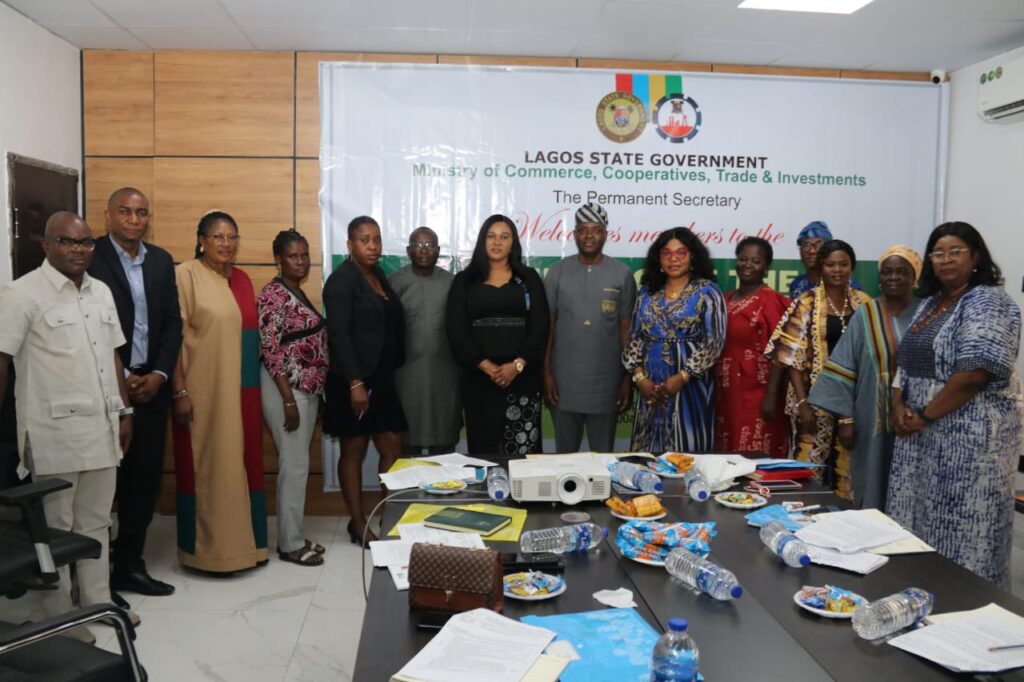
The Lagos State Government has tasked its Export Promotion Committee with stepping up efforts to position Lagos as the leading hub for non-oil exports in Nigeria and across Africa.
Speaking at a meeting of the committee on Thursday, the Permanent Secretary of the Ministry of Commerce, Cooperatives, Trade and Investment (MCCTI), Dr. Olugbemiga Aina, said the gathering was a strategic platform to agree on bold, actionable, and measurable steps that will accelerate diversification of the State’s economy.
He highlighted key export opportunities in coconut, fisheries, vegetables, and Micro, Small and Medium Enterprises (MSMEs) products, stressing that Lagos has a strong comparative advantage in these areas.
“I am particularly proud that Lagos achieved another milestone in December 2024 by commencing the export of coconuts to Dubai. This singular act demonstrated that when value is added and standards are upheld, our products can compete globally,” Dr. Aina said.
He noted that the State has also made progress in sensitising MSMEs on opportunities within the African Continental Free Trade Area (AfCFTA) framework, but emphasized that more work was needed to fully prepare entrepreneurs for international competition.
Government Support for Export Growth
Dr. Aina assured that Lagos State, through the MCCTI, will continue to support MSMEs by providing subsidised industrial workplaces, building capacity, expanding access to finance through the ₦10 billion Lagos State Access to Finance through Cooperatives (LASMECO) programme, promoting research and innovation, and facilitating linkages with off-takers and international buyers.
He reiterated Governor Babajide Sanwo-Olu’s commitment to creating an enabling environment for exports through progressive policies and strong Public-Private Partnerships (PPPs), anchored on the State’s T.H.E.M.E.S Plus Development Agenda.
“Together, we have the capacity to make Lagos Africa’s foremost hub for non-oil exports. The responsibility is ours, and the time is now. Exports are not just about goods; they are about Lagos telling its story to the world,” he added.
Stakeholders’ Contributions
Representative of the Nigerian Export Promotion Council (NEPC), Mrs. Bolanle Emmanuel, revealed that the Council had mapped out joint training programmes for stakeholders aimed at expanding the range and volume of Nigeria’s exportable goods.
Also speaking, Assistant Commissioner of Police Mary Ayim, who represented the Lagos State Commissioner of Police, stressed the importance of timely communication regarding the movement of export goods. She explained that advance information would allow the police to issue directives to checkpoints, reducing delays and preventing spoilage of goods.
The committee members unanimously agreed to hold meetings on a quarterly basis to sustain dialogue, monitor progress, and ensure stronger collaboration among stakeholders.
